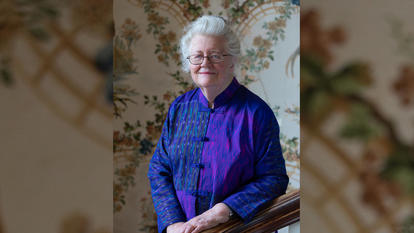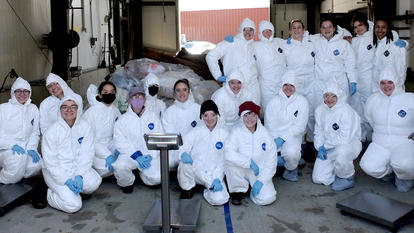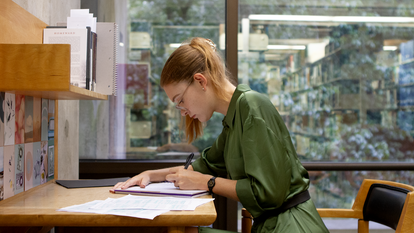Wellesley Professor Discusses Global Economics in Wake of Davos

In late January, 3,000 international leaders from the business, political, and cultural sectors met in the mountains of Davos, Switzerland, for the annual four-day meeting hosted by the World Economic Forum. This year’s theme was “Globalization 4.0: Shaping a New Architecture in the Age of the Fourth Industrial Revolution.”
Quinn Slobodian, associate professor of history at Wellesley and author of Globalists: The End of Empire and the Birth of Neoliberalism, followed the meeting closely via news and social media. Here, he shares his insights on Davos and discusses current trends in international economics.
How did the conference at Davos assess global economic growth? Are some dynamics more pressing than others?
Quinn Slobodian: In its report to the conference, the IMF [International Monetary Fund] gave the most direct assessment of the health of the world economy. The IMF expressed concerns about the German auto sector, which is still the heart of manufacturing there. The U.S. is plagued by uncertainty because of not only the constant threat of government shutdown but also the erratic pattern of trade policy, often unilateral and in breach of existing treaties, over the last year and a half, best captured in the large tariffs levied against China as well as allies like Canada. The biggest concern seemed to be about China, which weathered the storm of the 2008 global financial crisis relatively well but is now arguably reaching the end of a rescue program based on high levels of infrastructure spending and monetary expansion.
The theme for Davos this year was “Globalization 4.0.”Are there fragmentations or integrations across the world that could impact globalization?
Slobodian: Talk of fragmentation and integration should always distinguish between people, goods, services, and money. Since the end of the Cold War, long before any talk of “building the wall and making Mexico pay for it,” we have seen the phenomenon of ever more freedom for the movement of capital and goods and ever less freedom for the movement of people. Global norms on trade and capital movements, highly regulated through international treaties and organizations, are not matched by enforceable norms or regulations on the freedom of [human] movement. In that sense, fragmentation is nothing new.
In its annual wealth check released to mark the start of Davos, Oxfam International said billionaire fortunes increased by 12 percent in 2018, or $2.5 billion a day, while the poorest half of the world’s population saw their wealth decline by 11 percent. Did economic inequities receive much attention or practical discussion at Davos?
Slobodian: Yes and no. On the one hand, one can speak openly of inequality at Davos now in a way that would have raised eyebrows before. This has been the real success of both new scholarly works as well as the pressure of social movements to put these topics on the agenda of political parties like Labour in the U.K. and the progressive wing of the Democratic Party in the U.S. I would say the mood at Davos is that inequality is now undeniably a systemic problem that must receive some attention. On the other hand, there is a real timidity about embracing the kinds of policies which would actually make a dent in inequality.
There was only one, reportedly under attended, session on tax avoidance at the conference, and mention of U.S. Representative Alexandria Ocasio-Cortez’s recent proposal for a 70 percent marginal income tax rate (which has historical precedent and enjoys widespread approval in the U.S.) was met with laughs from the hall.
Many countries were represented at Davos, each with differing environmental agendas and approaches. Did they reach a consensus on climate change?
Slobodian: Davos is a more or less climate-denial-free zone. On paper, the consensus view seems to be that captured by the UN Intergovernmental Panel on Climate Change that, as the summary of one panel put it, “the world has 12 years left to prevent catastrophic global warming.” One panel was called “Safeguarding Our Planet,” another “Escaping Extinction.” Yet, as many social media wags were quick to point out, despite the rhetoric, this was also the World Economic Forum with a record number of private jets in attendance. The sociologist Will Davies quipped that the message seems to be “avoid the change you want to see in the world.”
Photo: L to R: EU Commissioner for Trade Cecilia Malmstrom, Cathay Capital Private Equity Founder and President Cai Mingpo, Deutsche Bank CEO Christian Sewing, moderator Paula J. Dobriansky, UPS Chairman, and CEO David Abney and World Trade Organization (WTO) Director-General Roberto Azevedo in a session during the 2019 World Economic Forum annual meeting in Davos, Switzerland.



